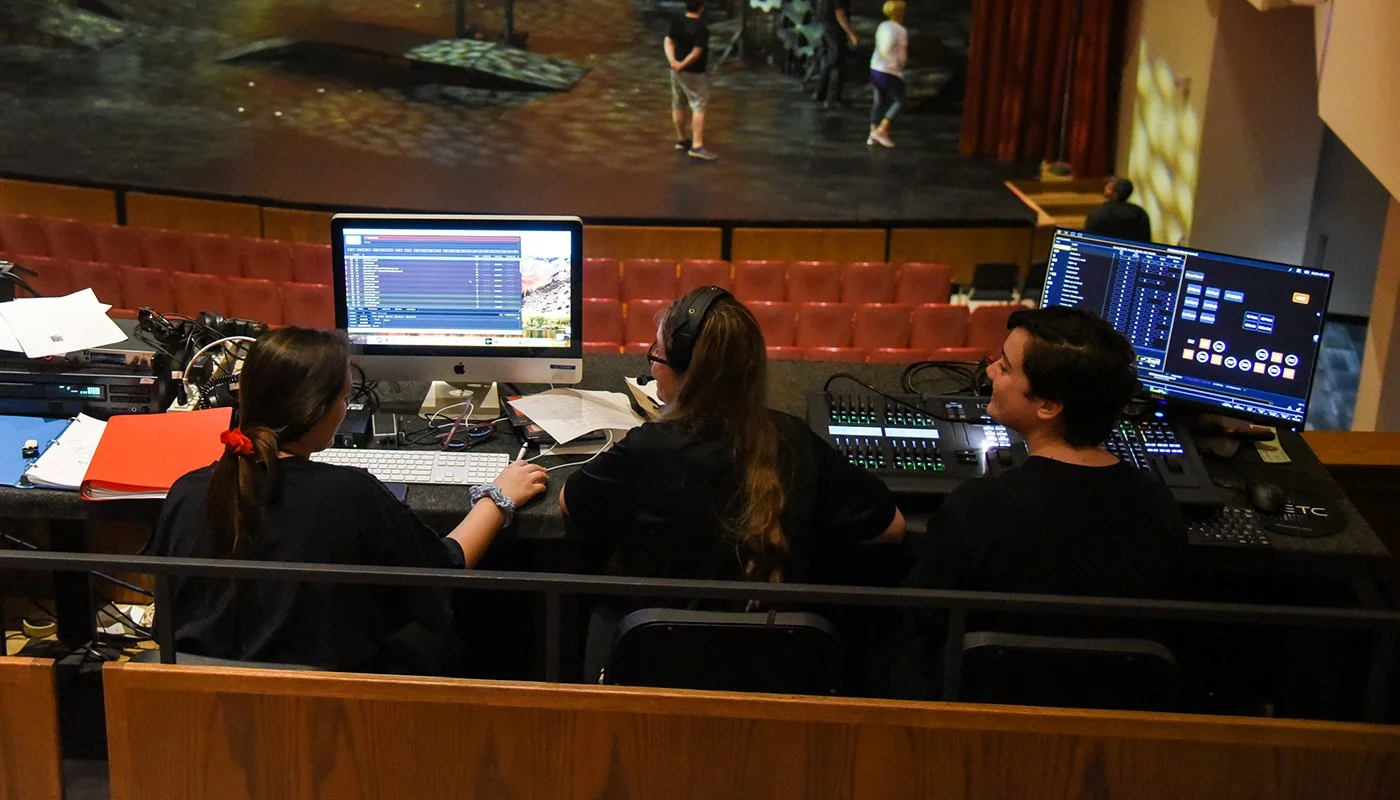10 Questions Every Community Theatre Director Should Be Ready to Answer from Their Stage Manager
by Chris Peterson
In community theatre, your stage manager is your lifeline. They’re the one keeping track of time, actors, props, tech needs, and all the little details you don’t have the bandwidth for when you’re trying to get Act Two to run clean.
The best stage managers I’ve worked with—and I’ve been lucky to work with some great ones—have all asked me some version of the questions below. If you’re a director walking into the first rehearsal without answers to these, you’re setting yourself up for confusion later.
So here are 10 things your stage manager is probably going to ask you. Be ready.
1. What’s your vision for the show?
They’re not looking for a dissertation. But they need to know the tone. Is it comedic or grounded? Is it heightened, modern, abstract? If you see Our Town as cold and stripped down or want Into the Woods to feel like a storybook come to life, they need to hear that early. Your vision helps guide every cue, entrance, and transition. It gives your stage manager a map for the world you’re trying to build.
2. What scenes or numbers should we rehearse first?
Time is limited. Actors have work, family, and other shows. Your SM is trying to make the most of every night, so they’ll want to know your priority list. Which scenes need the most attention? Which ones can wait? Let them know if you want to start with the emotional scenes, big group numbers, or just work chronologically. That clarity helps build a rehearsal schedule that works for everyone—and prevents you from wasting time with half a cast sitting around.
3. What’s the policy on lateness or missing rehearsal?
This is a tricky one in community theatre. Life happens. But your stage manager needs guidance. Are you strict about attendance? Do you allow a certain number of absences? What happens if someone flakes more than once? Whatever your approach is, spell it out. That way your SM knows how to respond without having to guess whether to be flexible or firm. It sets the tone for the whole cast from day one.
4. How should we give actors their line notes?
Some directors like to do it at the end of rehearsal. Others want line notes given immediately after a scene. I’ve worked both ways, but the important thing is consistency. Your stage manager needs to know how you want it handled so they’re not putting actors on edge or disrupting your flow. A clear system for line notes also helps actors stay sharp and builds trust that someone’s keeping an eye on the script.
5. Do you want to call the breaks, or should I?
You’d be surprised how often this one gets overlooked. Breaks matter, especially in long blocking rehearsals. If you want to keep control of when they happen, say so. If you want your SM to call them every 90 minutes, let them know. Nothing throws off momentum more than confusion over whether you’re on a break or not. The best stage managers keep everyone on a rhythm, but only if you’ve told them what rhythm you want.
6. What’s the best way to reach you outside of rehearsal?
Is it text, email, a group chat, or a shared doc? Set the expectation. Your SM is the one fielding questions from actors, checking on props, and coordinating with your design team. They need to be able to reach you without delay when something comes up—because it will. And if you prefer to only get big-picture updates or want to be looped in on every little thing, let them know that too.
7. Are there any big technical or staging ideas I should know about now?
If you’re planning a fog reveal, a flying entrance, or a last-minute lighting shift, don’t keep that to yourself. Even if it’s just an idea in your head, say it out loud. The earlier your SM hears about it, the more time they have to prepare. No one wants to scramble two days before opening because you forgot to mention that Scene 6 needs to happen in blackout with a quick change in ten seconds.
8. How are you planning to block the show?
Some directors call out blocking in the moment. Others plan it ahead of time. Some write it in a notebook, others sketch it out on paper. However you do it, let your SM know. They’re the one keeping the blocking book. If they’re trying to document your staging but you haven’t told them how you work, that leads to miscommunication and mistakes. A solid stage manager will adjust to your process—they just need to know what it is.
9. How do you want to handle notes during tech and dress?
Tech week is where things either come together or fall apart. If you want to run scenes without stopping and give notes at the end, say so. If you want to pause and reset on the spot, that’s fine too—but let your SM know. They’ll be your partner in keeping things moving. The best tech weeks I’ve had were the ones where everyone knew the note flow ahead of time and stuck to it.
10. Who makes the final call when something goes wrong?
It’s going to happen. A cue will be missed, a prop will break, or someone will get sick on opening night. Your stage manager needs to know who has the authority to make decisions on the fly. Is it you? The producer? Someone from the board? You don’t want a game of telephone happening backstage during a crisis. Make it clear who they go to, and they’ll be ready to lead when you need them most.
